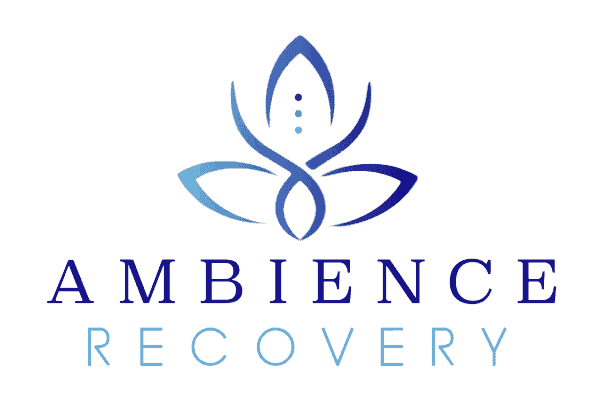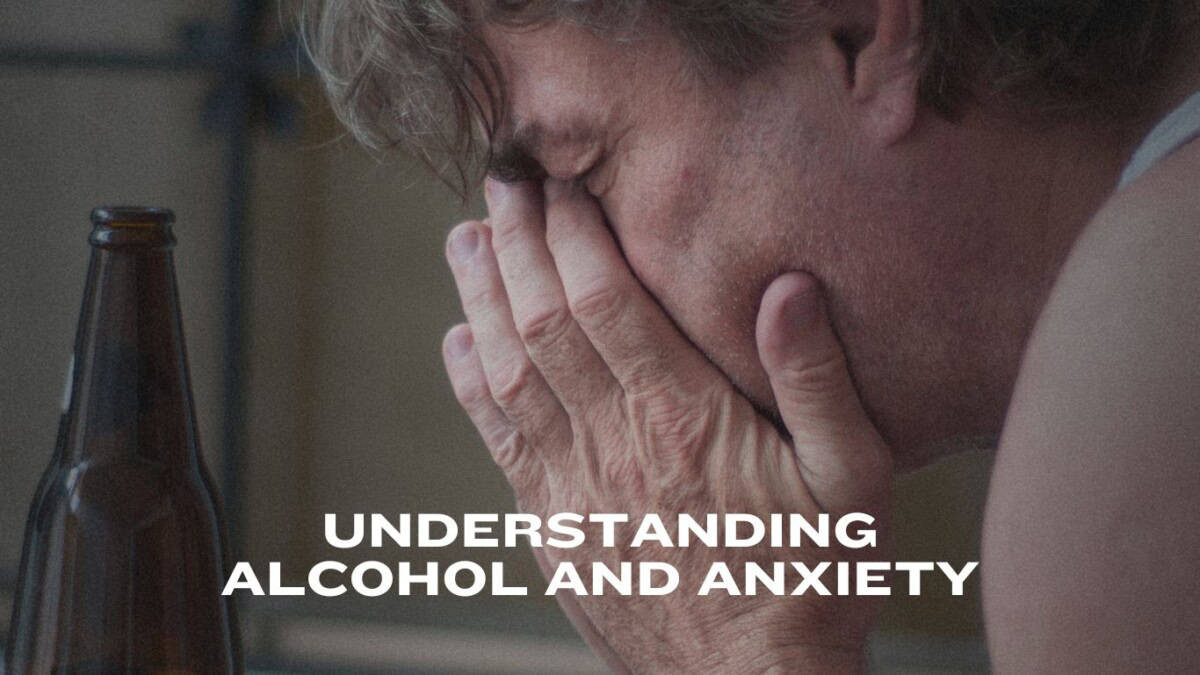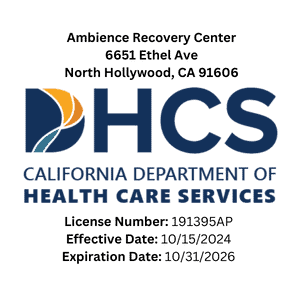Anxiety is a common challenge, sometimes fleeting, sometimes constant like the Texas sun. The struggle to stop drinking can lead to increased anxiety and panic attacks. The cycle of using alcohol to cope can lead to severe consequences. Understanding the effects of alcohol on withdrawal symptoms is essential for recovery.
The relationship between anxiety levels and alcohol consumption is significant. Many find temporary relief in alcohol, not seeing the cycle it creates, which ultimately increases feelings of anxiety. Alcohol may seem like a friend but often turns into an enemy, trapping people in a struggle of mental health and alcohol use1.
Does Alcohol Cause Anxiety Disorders?
In places like Dallas/Fort Worth, paths to wellness emerge, offering clarity and help to cut the bond between alcohol and anxiety. Taking firm steps, people start to escape the grasp of both anxiety and alcohol, guided by experts like those at Connections Wellness Group2.
There’s a hidden link between anxiety disorders and reaching for a drink, a path well-worn by many. Those facing anxiety are much more likely to also battle with drinking problems3. While drinking may offer a brief pause from anxiety, it actually leads to more anxiety over time2. This cycle affects many, from young people to adults, disrupting life and peace3.
Now is a time for understanding and action. There are proven ways to untie the knot of alcohol and anxiety. Combining therapy like cognitive-behavioral therapy, lifestyle changes, and support groups can create a path to freedom2. This journey encourages moving away from alcohol as a coping mechanism and embracing healthier ways to deal with anxiety1.
We are about to explore the tough journey of overcoming alcohol and anxiety. Our goal is to shine a light on the dangers of withdrawal, explain the complex relationship between body and mind, and guide towards a full recovery. This guide is filled with real data and expert advice, aiming to lead those fighting anxiety and alcohol towards a better future.
Understanding the Complex Relationship Between Alcohol and Anxiety
Dealing with anxiety disorder and drinking creates a tough cycle that can be hard to break, especially with rising anxiety levels. This leads to problems like alcohol abuse and anxiety. Understanding both the mind and body is key to effective treatment.
The Psychological and Physiological Links
People facing anxiety and alcohol issues might have both conditions at the same time4. Anxiety disorders can make alcohol dependence more likely. This is especially true with panic disorder. Yet, obsessive-compulsive disorder has a less strong connection5.
Self-Medication Gone Awry
Some use alcohol to feel better from anxiety, not seeing the harm long-term. For example, Generalized Anxiety Disorder leads some to drink as a way to cope4. Unfortunately, this often makes anxiety worse and disrupts everyday life6. We must address this to help people recover.
When alcohol is used to fight sadness and anxiety, it can backfire. Even though it might seem helpful at first, the high amounts of alcohol usually lead to more sadness and anxiety. This can get worse over time6.
Neurotransmitters and the Illusion of Relief
Alcohol can change how brain chemicals, like dopamine, work. It might seem to help with anxiety at first4. But these changes can actually cause more depression and anxiety in the long run6. As things get worse, patterns of disease can vary based on things like gender and where you’re from5.
| Condition | Impact on Alcohol Use | Associated Disorders |
|---|---|---|
| Panic Disorder | High association with alcohol dependence5 | Increased panic attacks6 |
| Generalized Anxiety Disorder | Leads to self-medication with alcohol4 | Drive for alcohol misuse in absence of medical treatment4 |
| Social Anxiety | Can trigger phobias and worsen social interactions4 | Agoraphobia and social phobias4 |
We must see anxiety disorder and drinking as an interplay that needs a broad approach. This is crucial for effective treatment and healing.
Recognizing the Symptoms and Dangers of Alcohol Withdrawal
Tackling alcohol addiction and controlling anxiety are key aspects of dealing with alcohol withdrawal. The symptoms range from mild, such as anxiety and shaky hands, to serious ones like seizures and delirium tremens . Feelings of depression, fatigue, and irritability are also common. These may hit their peak 24 to 72 hours after stopping drinking7.
Long-term alcohol use leads to changes in the brain. This affects neurotransmitters like GABA and glutamate, which can increase anxiety levels. Such imbalance causes the withdrawal symptoms to be intense. This is why it’s crucial to have medical support during detox from alcohol to cope with withdrawal symptoms.8.
Withdrawal can get worse over time through a process called kindling. Each withdrawal episode could be more severe than the last. This makes dealing with anxiety even harder for those with an alcohol problem without expert help8.
| Withdrawal Symptom: The effects of alcohol can lead to severe withdrawal symptoms. | Commonality |
|---|---|
| Anxiety, agitation | Very Common |
| Shaky hands, insomnia | Common |
| Seizures, hallucinations | Less Common but Severe |
| Delirium Tremens (DTs) can occur as withdrawal symptoms after heavy alcohol consumption. | Rare, Life-Threatening |
It’s important to manage withdrawal symptoms well, especially when trying to stop drinking. About half of those who stop or cut back on alcohol will have withdrawal signs. The challenge is big, with 1 in 17 veterans in hospitals treated for alcohol issues87. Groups like Alcoholics Anonymous and the Substance Abuse and Mental Health Services Administration offer great help. They give resources for recovery and handling alcohol addiction long-term7.
Recognizing these symptoms and the dangers involved is the first step toward recovery. Creating a safe detox environment and using support networks are critical for overcoming alcohol addiction.
Alcohol and Anxiety: Strategies for Healing and Recovery
Understanding how to deal with mental health and alcohol use is key for many. About 40 million in the U.S. deal with anxiety9. There’s a big overlap between those with anxiety disorders and those who depend on alcohol10.
Treating mental health and alcohol use disorders together offers hope and a way to better health. First steps often include detox, which lasts about 2 to 7 days11. But lasting recovery involves more than getting through withdrawal. It needs a full plan that includes therapy and changing your lifestyle.
Psychotherapy and Cognitive-Behavioral Therapy
Psychotherapy, especially cognitive-behavioral therapy (CBT), is key in treatment. It helps change harmful thought and behavior patterns. CBT helps people find better ways to cope, tackling the deep psychological issues of anxiety and alcohol use disorders. Alongside therapy, research into new treatments continues, like at the Mayo Clinic11.
Lifestyle Choices to Combat Anxiety and Alcohol Dependency
Living a balanced life helps fight anxiety and aids in alcohol recovery. Activities like yoga and meditation improve health and mental state by boosting natural chemicals that fight stress911. Techniques such as walking barefoot reduce anxiety too9.
Having a routine that includes enough sleep, healthy food, and ways to manage stress helps with recovery and health11. Joining support groups also offers emotional comfort and useful advice.
The road to recovery from alcohol and anxiety is complex and requires a combined approach. By learning and applying the right strategies for anxiety and alcohol, people can take back their lives and start a lasting recovery.
Managing Anxiety Without Alcohol
Moving away from using alcohol to handle anxiety requires a well-thought-out plan. It’s important to build a life that supports staying sober and manages anxiety well.
Healthy Coping Strategies
- Exercise is known for its power to lower stress and boost endorphin levels, making us feel better overall1213.
- Mindfulness activities like meditation and yoga play a key role in calming anxiety12.
- Writing in a journal for just five minutes each evening can help organize anxious thoughts. It’s a strong method for self-reflection and sorting through emotions13.
- Using positive self-talk and cognitive-behavioral strategies can help change harmful thought patterns that make anxiety worse12.
Seeking Professional Help
Dealing with alcoholism and anxiety often calls for help from professionals. This is especially true when trying to stop the cycle of using alcohol to feel better: panic attacks can intensify without proper support.
- Cognitive Behavioral Therapy (CBT) is often used to get to the root of anxiety and create healthier thinking habits12.
- Support groups and peer support offer a community that understands. They provide encouragement and share experiences vital for healing12.
- Professional counselors and psychologists can design specific treatments and strategies. They help tackle both the mind and body parts of recovery12.
Adopting these strategies leads to a positive change towards managing anxiety without alcohol. It helps develop a healthier mindset and lifestyle for lasting well-being12.
Breaking Free from the Cycle
For many, the first step to recovery from alcohol and anxiety is understanding its impact on mental health. Knowing this is key to breaking the cycle where each problem feeds the other. To get over alcohol use and anxiety, one needs an approach that includes setting real goals, finding the right help, and having strong support.
Setting Realistic Goals
Starting to heal means setting real and doable goals. It’s crucial to see how alcohol use affects mental health. This understanding is critical for effective recovery14. First goals might involve choosing a medically-guided detox program, a common first step in healing14. Then, setting goals for therapy and lifestyle changes like good sleep and exercise helps a lot. These changes boost both physical and mental health14.
Building a Support System
A strong support network is very important for those dealing with alcohol and anxiety. Such a network offers encouragement and lets people share experiences. This sharing creates a sense of belonging. Group therapy is great for this, giving a place to share and understand together14. Plus, practices like mindfulness and yoga help lessen stress and anxiety, aiding symptom management14.
How to Access Resources
Finding the right resources is crucial in overcoming alcohol and anxiety. Great rehab programs tackle both the addiction’s physical and psychological sides14. For instance, Connections Wellness Group in Dallas/Fort Worth has many services for a full recovery path. They offer wide support as individuals move towards sobriety and mental stability. Also, aftercare post-rehab keeps recovery on track, preventing relapse with ongoing support and encouragement14.
With the correct method, and through realistic goals, ample support, and reaching out for resources, escaping the cycle of alcohol and anxiety is possible. It’s a real chance for many.
Conclusion
We’ve looked closely at how alcohol and anxiety are linked, creating a hard cycle for many. Studies have shown a strong connection between anxiety disorders and alcohol dependence. This highlights the need for careful treatment plans15. Fighting alcohol abuse to improve mental health is not just an individual effort. It requires a big support network and professional help.
Symptoms of anxiety and alcohol abuse often appear together, making each other worse. This is especially true for those getting treatment for substance abuse15. Drinking a lot over time can even change the brain and mess with how we handle stress. This makes anxiety disorders worse, stressing the need to address both issues16. Understanding the different kinds of alcoholism and the genetic factors involved is key15.
Turning our attention to teenagers, we see anxiety symptoms get worse from middle to late adolescence. This could lead to long-term issues with substance use17. It’s very important to step in during these years to prevent and reduce the risks of starting to drink early17. The fight against alcohol and anxiety is tough and personal. Yet, with the right knowledge, treatment, and support, people can achieve lasting mental health and a happier life.
FAQ: Frequently Asked Questions
What is the relationship between alcohol and anxiety?
The relationship between anxiety and alcohol is complex. While some people drink alcohol to relax and reduce feelings of anxiety, alcohol can actually worsen anxiety over time. Consuming high amounts of alcohol can alter brain chemistry and increase anxiety levels, leading to a cycle of dependence and further anxiety symptoms.
How does alcohol use impact panic attacks?
Alcohol use can trigger panic attacks in individuals, particularly those with an existing panic disorder or other anxiety disorders. The effects of alcohol on the central nervous system can cause fluctuations in mood and heightened anxiety symptoms, which may precipitate a panic attack.
Can drinking alcohol lead to the development of an anxiety disorder?
Yes, chronic alcohol use can contribute to the development of an anxiety disorder. Regular and excessive alcohol consumption can disrupt the balance of neurotransmitters in the brain, potentially leading to anxiety and other mental health issues. This is particularly true for individuals who turn to alcohol as a way to cope with stress and anxiety.
What is alcohol withdrawal and how does it affect anxiety levels?
Alcohol withdrawal occurs when someone who is dependent on alcohol suddenly stops drinking. During this period, the body and brain experience a rebound effect, leading to increased anxiety symptoms, irritability, and in severe cases, panic attacks
Source Links
- No title found – The effects of alcohol on mental health are often overlooked. https://www.drinkaware.co.uk/facts/health-effects-of-alcohol/mental-health/alcohol-and-anxiety
- Breaking the Vicious Cycle: The Relationship Between Anxiety and Alcoholism – https://connectionswellnessgroup.com/blog/breaking-the-vicious-cycle-the-relationship-between-anxiety-and-alcoholism/
- The vicious cycle of alcohol and anxiety – ABC listen – https://www.abc.net.au/listen/programs/allinthemind/the-vicious-cycle-of-alcohol-and-anxiety/13847976
- Alcohol And Anxiety – https://www.alcoholrehabguide.org/resources/dual-diagnosis/alcohol-and-anxiety/
- Anxiety and Alcohol Use Disorders: Comorbidity and Treatment Considerations – https://www.ncbi.nlm.nih.gov/pmc/articles/PMC3860396/
- Alcohol, Anxiety, and Depressive Disorders – https://www.ncbi.nlm.nih.gov/pmc/articles/PMC6876499/
- Alcohol withdrawal: MedlinePlus Medical Encyclopedia – https://medlineplus.gov/ency/article/000764.htm
- Alcohol Withdrawal Syndrome – StatPearls – https://www.ncbi.nlm.nih.gov/books/NBK441882/
- Dealing With Anxiety During Recovery – https://www.ashleytreatment.org/rehab-blog/cope-anxiety-recovery/
- 5 Ways To Deal With Anxiety When You’re Sober – https://www.addictioncenter.com/community/5-ways-deal-anxiety-youre-sober/
- Alcohol use disorder – Diagnosis and treatment – Mayo Clinic – https://www.mayoclinic.org/diseases-conditions/alcohol-use-disorder/diagnosis-treatment/drc-20369250
- How to deal with anxiety without alcohol – https://www.livewelldorset.co.uk/faq/drink-less/how-to-deal-with-anxiety-without-alcohol/
- How I Learned to Cope with my Anxiety without Alcohol – NoPanic – https://nopanic.org.uk/how-i-learned-to-cope-with-my-anxiety-without-alcohol/
- Break Free From Alcohol-Fueled Anxiety & Depression – https://boldhealthinc.com/alcohol-induced-anxiety-depression/
- Co-Occurring Alcohol Use Disorder and Anxiety: Bridging Psychiatric, Psychological, and Neurobiological Perspectives – Understanding how alcohol consumption influences anxiety levels is crucial. https://www.ncbi.nlm.nih.gov/pmc/articles/PMC6927748/
- Alcohol and Anxiety: Understanding the Link | Expert Insights – https://excel-psychiatry.com/alcohol-and-anxiety-attacks/
- Associations of Social Phobia and General Anxiety with Alcohol and Drug Use in A Community Sample of Adolescents – https://academic.oup.com/alcalc/article/46/2/192/198705
Katie is a Licensed Clinical Social Worker who has worked as a primary therapist, supervisor, and now clinical director for SUD/MH treatment centers for the past 12 years. Katie is trained in Brainspotting, EMDR, Internal Family Systems and Dialectical Behavior Therapy and is passionate about treating substance use disorders, trauma and grief.






